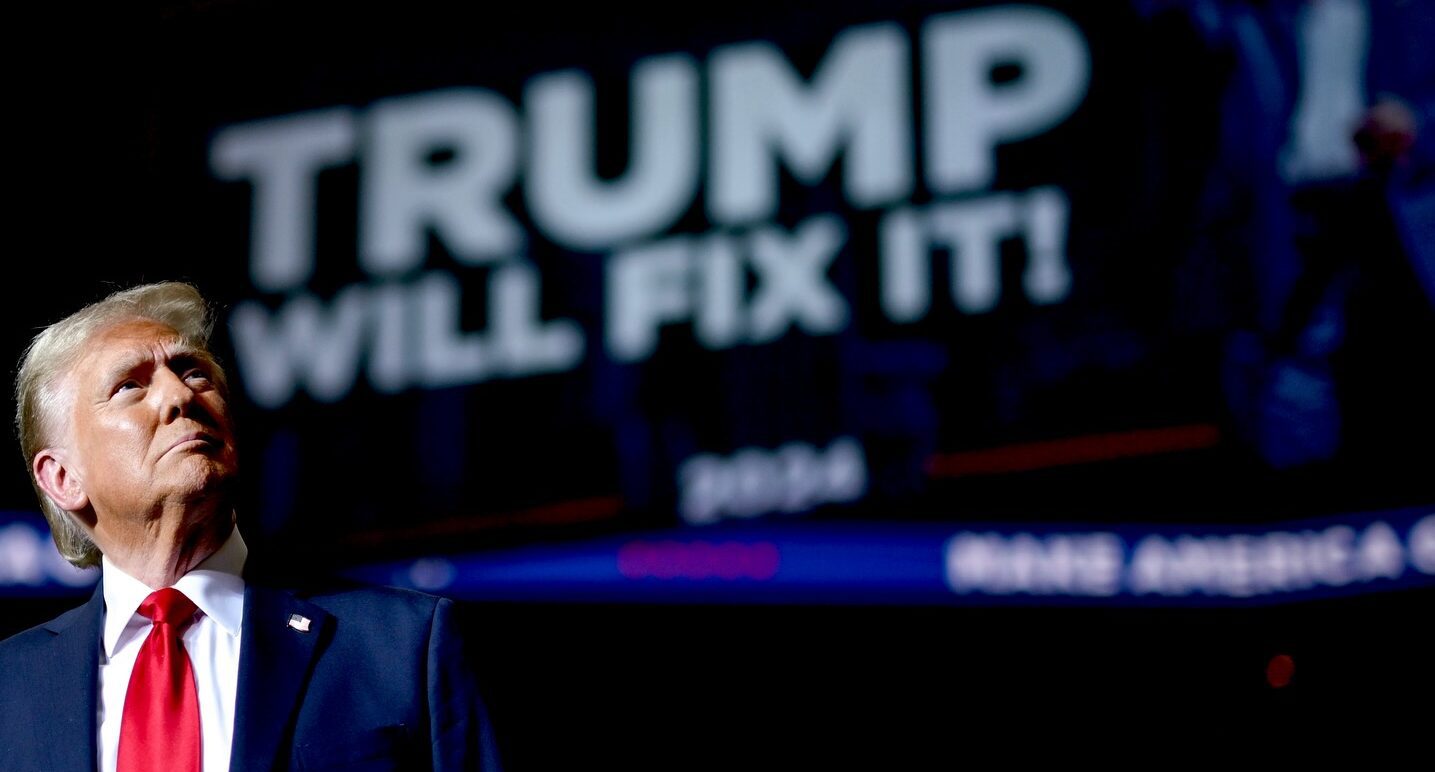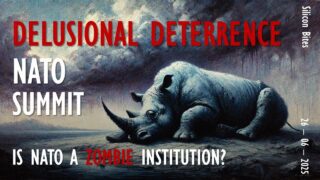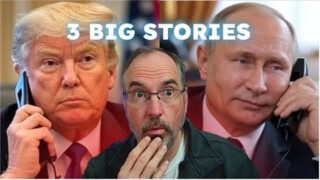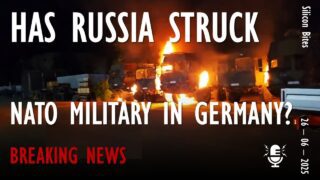
why concession to Putin risks global instability
Many commentators, writing for disparate motives, have opined that President Trump should make a deal with Putin that cedes part of Ukraine and keeps it out of NATO for some undefined length of time. One intrepid writer even suggested excluding Ukraine from the negotiations because, presumably, the Munich example needs to be replicated.
He and other luminaries dismiss the idea of NATO peacemakers but remain at a loss as to what will work to keep this supposed peace. A key motive for many of these observers is that only peace or at least a cease-fire in Ukraine will allow Washington to pivot to and deal with the main threat, i.e. China.
The fatal flaw in these Trump recommendations is their profound misunderstanding – whether deliberate or not – of Putin’s objectives and the broader implications of appeasing Russia through Ukrainian concessions and NATO exclusion.
Sound policy can never be based on flawed reasoning. This principle applies even more forcefully when developing sound strategy, which encompasses far more than policy alone.
First of all, Putin is as much a Tsar or dictator as Russia’s preceding rulers, operating without legal or institutional constraints. While political scientists may call this a personalist authoritarian regime, Russia scholars recognize the reality: a patrimonial autocracy where the state – controlling 70% of the economy in 2014 and presumably more now – serves as the ruler’s personal domain, free from any checks on his authority.
Just as the Tsar’s power has no limits, Putin declares Russia itself has no boundaries (“Granitsy Rossii ne Zakanchivayutsa”). In other words, Russia was, is, and must remain an empire – a vast territory administered from Moscow where peoples have no rights against the state and where borders are viewed not as legal markers of sovereign states but as temporary obstacles to expansion.
This mindset predates the current criris; Russia has refused to accept the borders and sovereignty of the states between it and Germany since the 1990s.
Moreover, Putin and his circle consistently advance two intertwined claims:
- Ukraine is inherently Russian;
- this war steps from NATO’s alleged attempt to turn its supposed vassal state Ukraine into a member against Russia’s will.
Though some self-proclaimed experts still peddle this nonsense, this war’s true purpose is unmistakable: the restoration of the Russian empire, without which Putin’s power – and that of his likely successors – cannot persist.
This explains Russia’s 2021 ultimata to NATO and Washington, which sought to undo a generation of NATO expansion that occurred through the free and sovereign choices of every state in Central and Eastern Europe.
Russian aggression against Ukraine is not merely about Ukraine.
On the one hand it is about the restoration of the Russian empire, following Catherine the Great’s maxim that “I can only defend my frontiers by expanding them.”
On the other hand, it is about European, not just Ukrainian security, as it becomes clear under examination that no conceivable European security order can be compatible with a Russian empire.
A Russian empire inevitably means perpetual conflict – either hot or cold war – neither of which is compatible with the interests of Europe or, for that matter, with the real interests of the Russian people (save for Putin’s inner circle, oligarchs, and state functionaries).
Therefore, given Putin’s conviction that he is winning and his belief that the West and its ”vassal” Ukraine eventually will cave in, lacking what he sees as Russia’s moral fortitude to disregard over 800,000 casualties — any concession of territory or denial of NATO membership to Ukraine would only guarantee endless conflict across Europe, Asia, and potentially regions like the Middle East.
As many observers beyond this author have written,
surrendering territory and depriving Ukraine of the only security guarantee that Moscow truly respects – NATO membership – isn’t a path to peace but rather an invitation to further war.
Prominent European defense leaders now openly acknowledge the threat, regularly warning about a potential war with Putin. Indeed, Russia is at war with the entire West. While kinetic combat remains limited to Ukraine, Russia’s aggressive actions span the entire continent – from provocations in the Baltic Sea to election interference in the Balkans, sustained cyber and information warfare across Europe, and until this year, the weaponization of energy exports to influence if not subvert European governments.
Russia’s strategy goes beyond dismissing Central and Eastern European sovereignty (as shown in its ultimata demanding NATO withdrawal and regional demilitarization). The Kremlin employs every available instrument of power to both interfere in Western elections and establish permanent pro-Russian factions in major nations like the US, UK, France, and Germany – exemplified by the subsidization of Le Pen’s National Rally and Germany’s Alternative fur Deutschland (AFD).
The Friedrich Naumann Foundation’s recent analysis reveals how this strategy operates in Germany:
Despite measures to reduce dependence on Russian energy supplies following the Russian full-scale invasion of Ukraine, Germany’s economy and political system remain vulnerable to Russian malign influence. Extensive German-Russian networks, which Russia has cultivated and entrenched for decades, continue to play a crucial role in maintaining strong economic ties between Germany and Russia. They have also actively shaped public discourse and Russia’s image in Germany. At the heart of the Kremlin’s playbook is a model of state capture in which Russia uses its extensive security apparatus and control over Russian companies and oligarchs to leverage long-term dependencies and foster an environment in which strategic energy partnerships constrain Germany’s policy options.
Given this context, the dangers of territorial concessions and NATO rejection become clear: such moves would merely expand the conflict already unfolding across Europe. These concessions would reinforce not only Putin’s belief in Western weakness but also embolden other imperial-minded autocracies like China and Iran. These regimes share Russia’s imperial ambitions and would interpret Western acquiescence as confirmation that the time is ripe to pursue their own dreams of restored empires.
European deterrence and resistance have ripple effects: they strengthen deterrence in East Asia and support victory over Iran’s terrorist proxies in the Middle East. Conversely, surrendering to Russia and engaging in hollow negotiations with a regime that is hell-bent on destroying Ukraine would ensure a generation of war in Europe while triggering crises across Asia – including potential wars with China, Iran’s proxies, or North Korea (which benefits both from Russian and Chinese support).
Therefore, if President Trump aims to achieve his stated goals – increased allied defense spending, reorienting US defense toward Asia, revitalizing the US defense sector, and expanding US energy markets – there is only viable path: providing Ukraine the tools for victory rather than trapping himself in unwinnable negotiations with Putin. Despite Western voices advocating negotiations, territorial concessions, and excluding Ukraine from NATO, Russia has rejected all such proposals and insists on destroying Ukraine and absorbing its territory.
The Asian implications of overlooking Putin’s ambitions and ongoing aggression could not be more clear. Those advocating for imposed settlements – ceding Ukrainian territory without credible security guarantees – offer prescriptions that fall dangerously short of meeting current security challenges. If Trump truly aims to achieve his agenda, he must reject these false prophets who claim to champion US interests while advocating appeasement.
Trump not only can do better – he must do better if he wants to succeed. The path to achieving his objectives runs through Ukrainian victory. In this conflict, which will determine the future of Ukraine, Europe, and beyond, MacArthur’s maxim remains as relevant as ever: “there is no substitute for victory.”
Editor’s note. The opinions expressed in our Opinion section belong to their authors. Euromaidan Press’ editorial team may or may not share them.
Submit an opinion to Euromaidan Press
Related:












